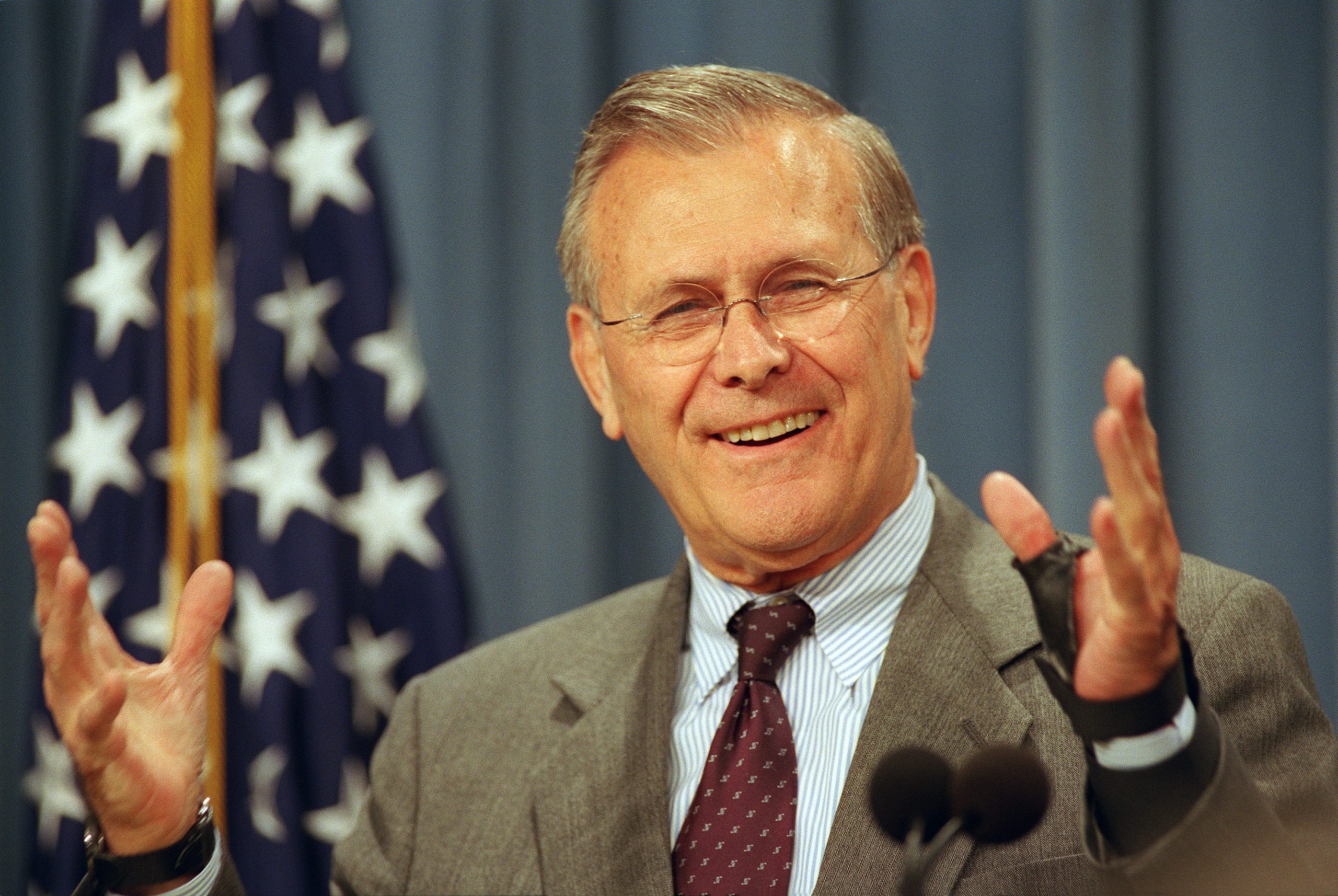
Although no longer working in Washington, Donald Rumsfeld served three U.S. presidents, led the Pentagon twice, and remains one of the most well-known politicians of his day. A former Navy pilot, Rumsfeld was sworn in as the 21st Secretary of Defense in 2001, where he was chiefly responsible for directing the actions of the U.S. in response to the terrorist attacks on September 11 that year.
Previously, Rumsfeld had also served as the 13th Secretary of Defense, White House Chief of Staff, and U.S. Ambassador to NATO. Additionally, Rumsfeld was a four-term U.S. Congressman from Illinois. Between his terms as Secretary of Defense, he served as the chief executive officer and chairman of several companies. No longer active in politics, his current civic activities include service on the Boards of Trustees of the Chicago Historical Society, Eisenhower Exchange Fellowships, the Hoover Institution at Stanford University, the Rand Corporation, and the National Park Foundation. Over the years, Rumsfeld has been awarded 11 honorary degrees and has received foreign awards from across the globe. Among his many honors and recognitions, he received the U.S. Presidential Medal of Freedom, the nation's highest civilian award, in 1977.
Known for its historic connections with the U.S. military, Princeton University propelled Rumsfeld’s entry into the world of global politics. Unlike many of his classmates, Rumsfeld didn’t come from a privileged background, attending Princeton University on academic and NROTC partial scholarships. As a college student, he was also an accomplished amateur wrestler. As a junior, he finished second in the Eastern Intercollegiate Wrestling Association in the 157-pound weight classification. Elected team captain for his senior year, Rumsfeld went undefeated again during the regular season. In 1954, he graduated with an A.B. in politics after completing a senior thesis that endorsed the Supreme Court's decision to curb President Harry Truman's use of emergency powers during the early 1950s.
Since graduating, Rumsfeld has remained particularly close to his old Princeton roots. Through his political celebrity, Rumsfeld, a repeat lecturer at Whig-Clio and the Wilson School, upheld his side of the public-service equation. The University reciprocated in kind. So that in 1985, Rumsfeld received the Woodrow Wilson Award — Princeton's highest honor — conferred upon alumni who “exemplify Woodrow Wilson’s memorable phrase ‘Princeton in the nation’s service.’” Several years later, he also became a Trustee. In 2014, Rumsfeld even made it back for his 60th reunion, posing for group photos with some of his old college roommates, who have obviously known him long before Princeton helped catapult him to Washington’s halls of power.
